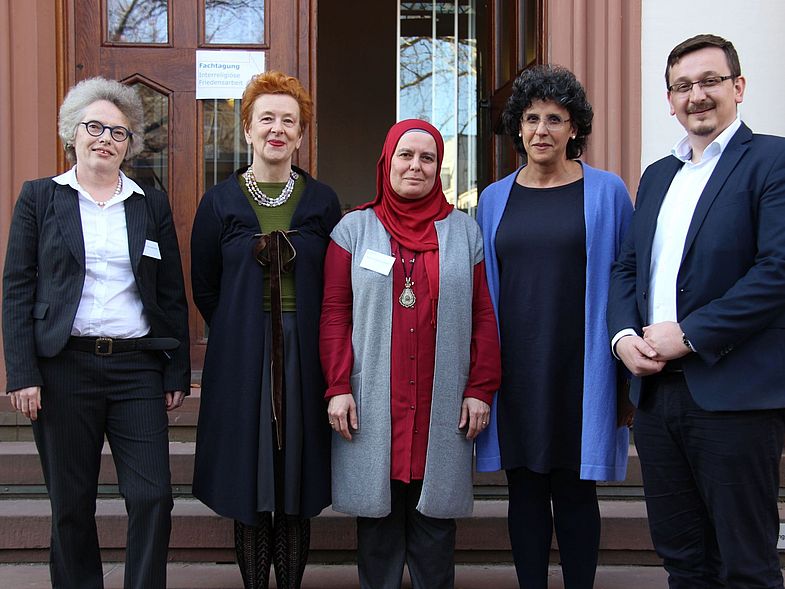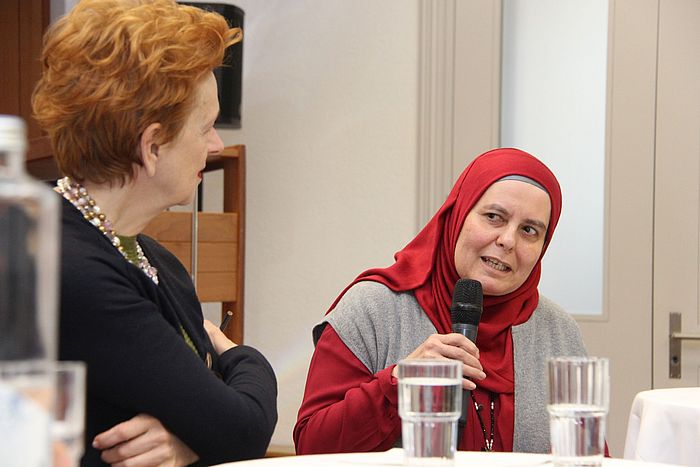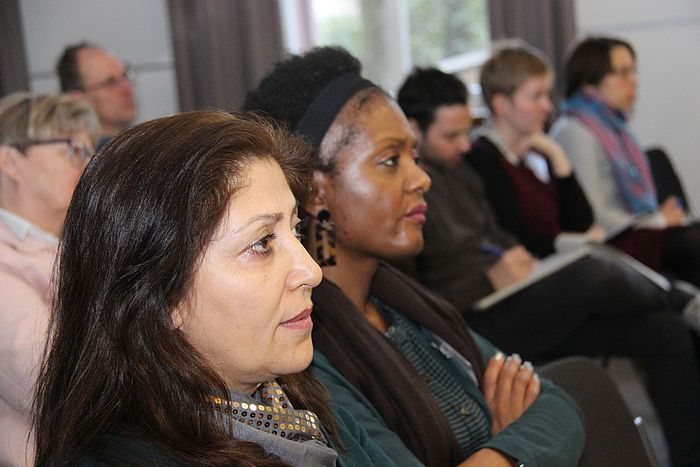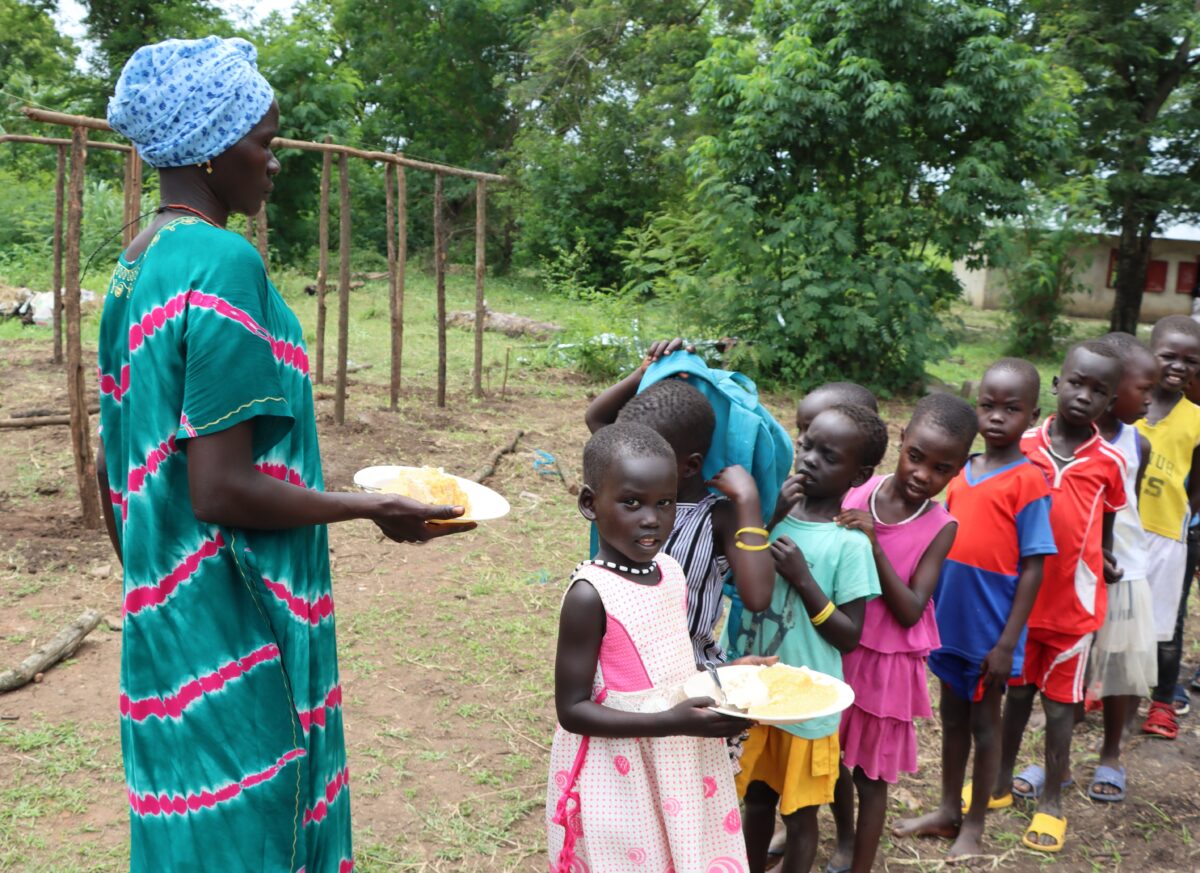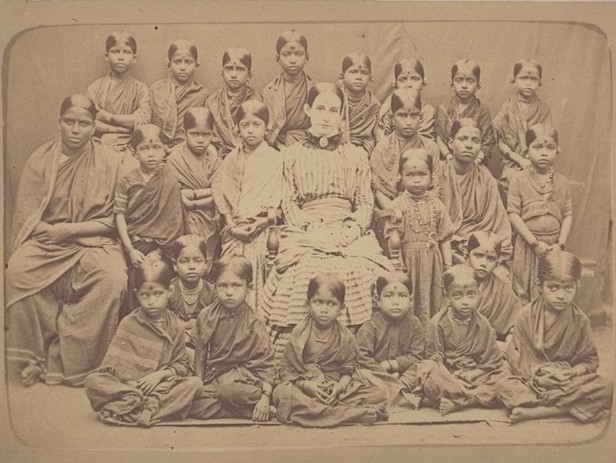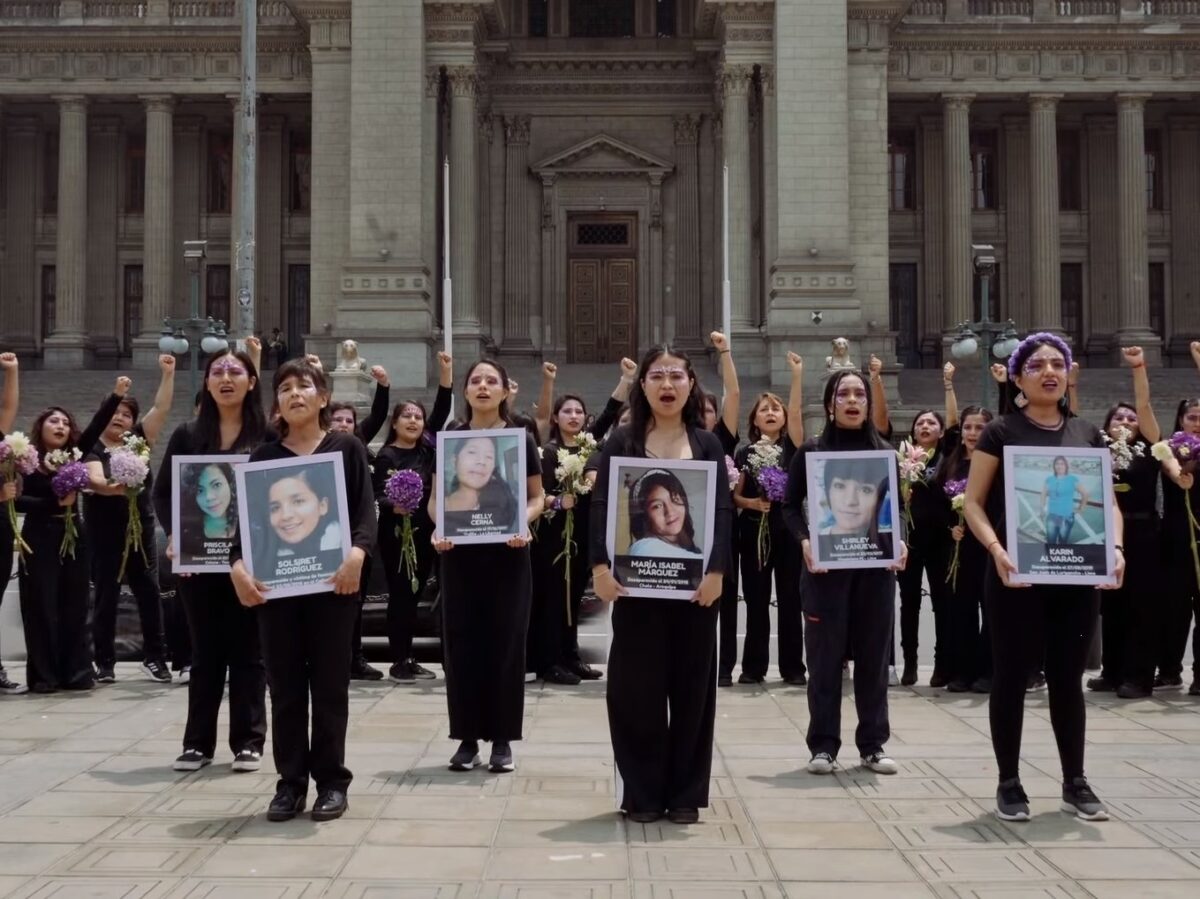Mission 21's symposium on interreligious peace work deliberately enticed participants with an ambivalent statement. "Islam belongs to Switzerland. - For many, this statement is simply a statement of fact, but others see it as a provocation. Cause, then, for deeper discussion: Where do certain fears and insecurities about Muslim faith groups come from? Which feelings should be overcome and where is it worthwhile to clearly name grievances? The presentations of the three experts from different disciplines offered diverse and stimulating inputs.
Liberation from the fear of the foreign
The psychoanalyst Jeannette Fischer offered a dense introduction to the topic. In her presentation, she unfolded the vision of the individual who can meet and relate to other individuals without fear.
Jeannette Fischer started from the I from a psychoanalytical perspective. This becomes the ego through the realization that it is not another ego, i.e. that it is difference to all other people. Nevertheless, individuals generally assume that all others must be similar to them.
Accepting the difference between ourselves and others thus makes us as individuals capable of entering into a dialogue with other people. For it is the assumption that other people, for example migrant women, must actually be similar to us that leads to fears and rejection.
The willingness to recognize other individuals as different opens up a creative space, which Fischer has called "intersubjective space" or "third space," in which dialogue between people without prejudice becomes possible in the first place. However, this perspective also opens up questions on the societal level: how can one recognize societal groupings as "different" without patronizing their members? Where does recognition of otherness become indifference to anti-human rights practices within some religious communities? What protective functions must a majority society assume in such cases and how must these be designed?
Meeting without prejudice is an ideal, a goal that should be worked toward again and again. However, numerous obstacles stand in the way of this ideal in real everyday life, which is also shaped by power politics.
Which Islam belongs to Switzerland?
Elham Manea, a Yemeni-Swiss political scientist, addressed these challenges. Using very concrete examples from intercultural dialogue, she postulated the principle of "reciprocity" as a more fruitful path to constructive coexistence.
Elham Manea began with demographic facts to show that there is no such thing as "Islam" in Switzerland, but rather a variety of Muslim individuals, groups and associations that are shaped more by their culture of origin (80 percent of them come from the Balkan region) than by religion.
Recognizing Muslim religious communities under public law is problematic because they represent only a small minority of the Muslim population.
Above all, however, questions must first be clarified about what or whom one wants to recognize. With examples from Belgium and Austria, Manea made it plausible that recognition without clear criteria and also without accompaniment could lead to undesirable developments - such as closed societies within the majority society, where fundamentalist attitudes and anti-democratic values could be propagated.
Through reciprocity to constructive cooperation
"Tolerance is sometimes a one-way street," said the Yemeni-Swiss political scientist. The goal, she said, is rather to develop active citizenship based on reciprocity. It is important, she said, to enable Muslim women and men to take on tasks, to become involved in Switzerland. As a basis, they in turn would have to accept the norms and values of the democratic constitutional state. In order to promote this, however, there must be a willingness to invest time and money in cooperation with Muslim people and groups. For example, offering professional imam training at Swiss universities, the completion of which would have to be the basis for employment in a mosque in Switzerland. Or setting clear rules for schools or kindergartens to prevent Islamist groups from infiltrating children or young people with their ideas.
In the lively discussion that followed the presentation, it became clear that even these demands do not simply guarantee success. Rather, constant dialogue is needed in society to constantly re-examine freedoms and obligations.
Talking about content, not (only) about religion
In her third presentation, Magdalena Zimmermann from Mission 21 then brought the discussion to social realities in Switzerland. In her presentation, the theologian and head of the Education Exchange Research department of Mission 21 advocated a constructive culture of debate.
With various pointedly formulated examples, she made it clear that in a multicultural country like Switzerland, the negotiation of values is part of everyday life and can certainly have humorous features.
With eight theses, she set milestones along which a process of growing together could move. As a tip for communication that is as conflict-free as possible, Zimmermann suggested talking about the actual contents instead of thinking in terms of religious "camps" and gave the example of catering: "The most diverse diets and ideologies lead to numerous needs - a great challenge for public kitchens! However, instead of talking about kosher and pork in terms of religions, these can be calmly grouped into other catering habits - from gluten-free to vegetarian to vegan - and thus look for solutions."
Zimmermann's thesis that all sides must uphold religious freedom is also likely to be central. In concrete terms, this means that all people must have the freedom to change their religion. It is clear that the development of a "Swiss Islam" requires time and space. In concrete terms, "shelters" are important for women. Meeting places where Muslim women could discuss their concerns and issues without the presence of men. In general, Magdalena Zimmermann emphasized that Islam is indeed part of Switzerland today. But it is also up to the majority society to help shape which Islam it is.
Text: Christoph Rácz, Photo: Mara Wirthlin
